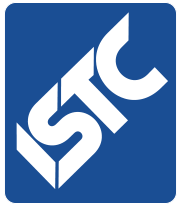Why do we need technical communication?
We all deal with complex systems at home and at work – from computers to cars, consumer products to business procedures. The need for accurate and accessible documentation to explain them has never been greater.
If people cannot use a product or service, or cannot find out how to solve problems they might come across, they are less likely to use or buy it. This means organisations need to create and manage content that guides users.
Technical communication is all around you
This content could be: Help pages, user guides, manuals, installation instructions, operating and safety procedures, business processes, training materials, chatbots, and even the text embedded into the product itself.
It includes the instructional material in every day use that we often take for granted. Indeed, some of the most successful technical documentation is that which allows a person to use the subject almost intuitively.
Technical communicators are highly skilled people
Technical communicators are experienced and trained in communicating technical information to their audience. They have:
- The ability to communicate clearly
- A understanding of how the subject can be used safely and efficiently
- Scientific or technical knowledge of the subject
- Skills in the tools used to create and publish the information
- An understanding of how we communicate
Technical communication as a career
Technical communicators who are members of the ISTC have a wide variety of backgrounds, and they work in many fields.
Job titles for technical communicators in the workplace
Technical communicators can appear under a number of different job titles in the workplace. These include:
- Information Designers
- Publication Managers
- Documentation Managers
- Technical Authors
- Technical Writers
- Documentarians
- Information Developers
- Content Developers
- Content Strategists
- Illustrators
- Translators
- Technical Communicators
It can also be part of other roles, such as:
- User Interface Designers
- User Acceptance Testers
- Information Architects
- Quality Managers
- DeskTop Publishers
- Editors
- Lecturers/Professors
- Instructors
- Engineers
- Graphic Designers
- Indexers
- Multimedia Designers
- Scientists
- Software Designers
- Trainers
- Webmasters and more!
What technical communication is not
Generally, the term “technical communication” is not seen as the writing of:
- Academic papers
- Instructions for medicines (this is usually known as medical writing)
- Encyclopaedias
- Advertisements (this is usually known as copywriting)
- Novels
More information
- What it’s like being a technical writer at GDS by the Government Digital Service (Gov.UK)
- The content designer role at the Government Digital Service (Gov.UK)
- Graphic novel – The CEO and the technical communicator by Cherryleaf (PDF).
- A day in the life of a technical communicator – A series of articles in Communicator journal.
- Careers in technical communication
- What skills and training do you need to be a technical communicator?
- Thinking of a career in Technical Communications?, by the ISTC (PDF).
- Technical Writer career factsheet for secondary schools and career fairs , by David Farbey (PDF).
- Why do we need technical communication?
- Why do we need technical communication? (article)
- Videos on technical communication
Join the ISTC
If you prepare instructional information, be it documents, web pages or technical illustrations, the ISTC is for you.
